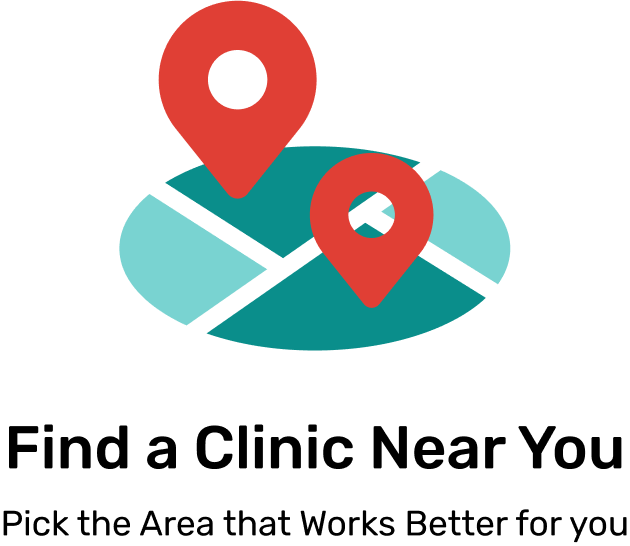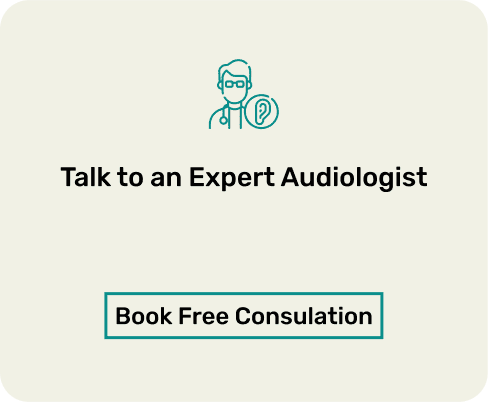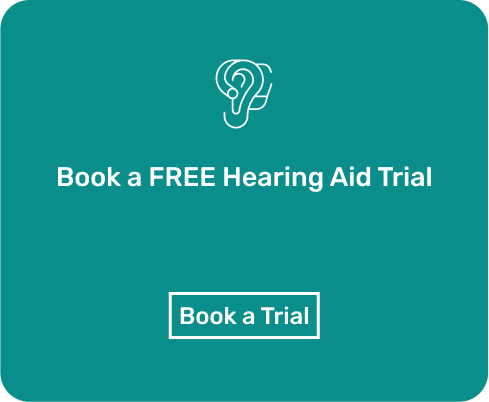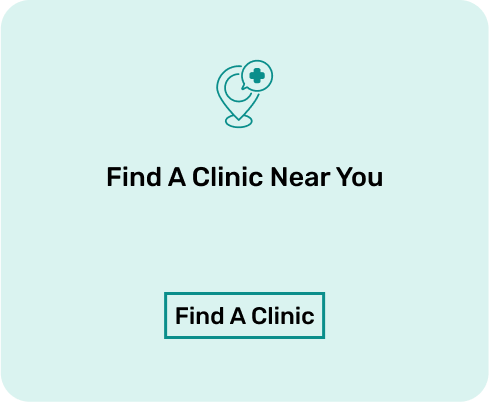When your newborn baby undergoes their first health screenings, you might notice a quick, non-invasive test being performed on their tiny ears. This simple procedure, called an Otoacoustic Emissions test (OAE hearing test), could be one of the most important early health checks your child receives.
Why? Because it can detect hearing difficulties that might otherwise go unnoticed for months or even years.
Unlike many hearing tests that require active participation, OAE newborn hearing tests work even when your baby is fast asleep. But its importance extends far beyond the newborn period, making it a valuable diagnostic tool for people of all ages who may be experiencing hearing concerns.
What Exactly is an OAE Hearing Test?
OAE testing is a sophisticated yet simple hearing test that measures the response of the inner ear to sound stimulation. Specifically, the OAE test evaluates the function of the outer hair cells in the cochlea, which are crucial for normal hearing function.
When sound waves enter your ear, they travel through the outer ear, middle ear, and finally reach the cochlea in the inner ear. The outer hair cells in the cochlea not only detect these sounds but also produce their own faint sounds in response, called otoacoustic emissions.

These emissions can be measured using sensitive microphones and specialised equipment.
The beauty of the OAE newborn hearing test lies in its objectivity. Unlike traditional hearing tests that rely on a person’s ability to respond to sounds, OAE tests measure actual physiological responses from the ear itself.
This makes it particularly valuable for testing newborns, young children, or individuals who cannot reliably participate in conventional hearing assessments. To learn more, read our blog post on hearing loss in children.
Price and duration of OAE Hearing Test
The OAE hearing test in Delhi typically costs between Rs. 800–Rs. 1500 and takes only about 5 minutes to perform, provided the baby is quiet and comfortable (not crying).
Conducting this simple, non-invasive screening for every newborn before discharge from the nursery is crucial, as it allows for immediate detection of potential hearing issues. Early identification ensures timely intervention, significantly enhancing the child’s speech, language, and overall development.
How Does the OAE Test Work?
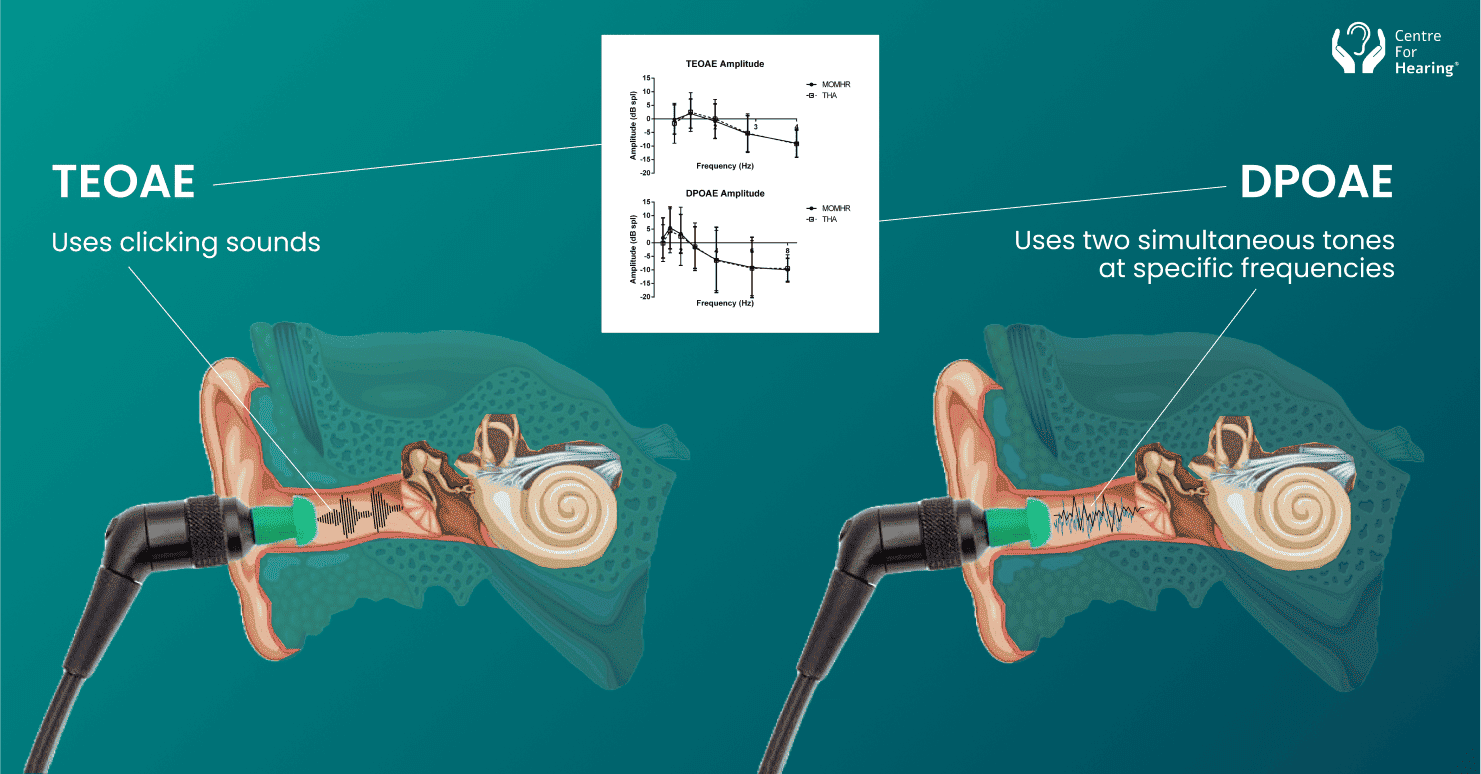
The OAE newborn hearing test procedure is remarkably straightforward and completely painless.
A small, soft probe containing a tiny speaker and microphone is gently placed in the ear canal. The speaker presents brief clicking sounds or tones to the ear, while the microphone simultaneously measures the otoacoustic emissions produced by the outer hair cells in response to these sounds.
There are two main types of OAE tests:
- Transient Evoked Otoacoustic Emissions (TEOAE): This test uses brief clicking sounds to stimulate the entire cochlea. It’s particularly effective at detecting hearing loss in the frequency range most important for speech understanding.
- Distortion Product Otoacoustic Emissions (DPOAE): This test uses two simultaneous tones at specific frequencies to assess hearing at particular frequency ranges. It provides more detailed information about hearing function across different pitches.
The entire test typically takes just a few minutes per ear and requires no preparation from the patient. For optimal results, the test is best performed in a quiet environment when the person being tested is still and relaxed.
Read More: BERA Testing for Children: A Complete Guide for Parents and Patients
OAE Hearing Test: The Critical Importance for Newborns
Early detection of hearing difficulties in newborns is crucial for several compelling reasons.
“The OAE Test is now considered mandatory at the time of birth for newborns”.
The first few years of life represent a critical period for speech and language development. Children who experience hearing loss during this time may face significant challenges in developing communication skills, which can impact their academic performance, social interactions, and overall quality of life.
According to medical research, approximately 1-3 out of every 1,000 babies are born with permanent hearing loss. Without early detection and intervention, these children may not develop speech and language skills at the same pace as their peers.
However, when hearing loss is identified early and appropriate support is provided, children can achieve communication milestones comparable to their hearing peers.
The OAE test serves as an excellent screening tool for newborn hearing programmes because it can identify hearing difficulties before they become apparent through behavioural observations. Many babies with hearing loss appear to respond to loud sounds or vibrations, which can mislead parents and even healthcare providers into thinking their hearing is normal.
Advantages of OAE Hearing Test
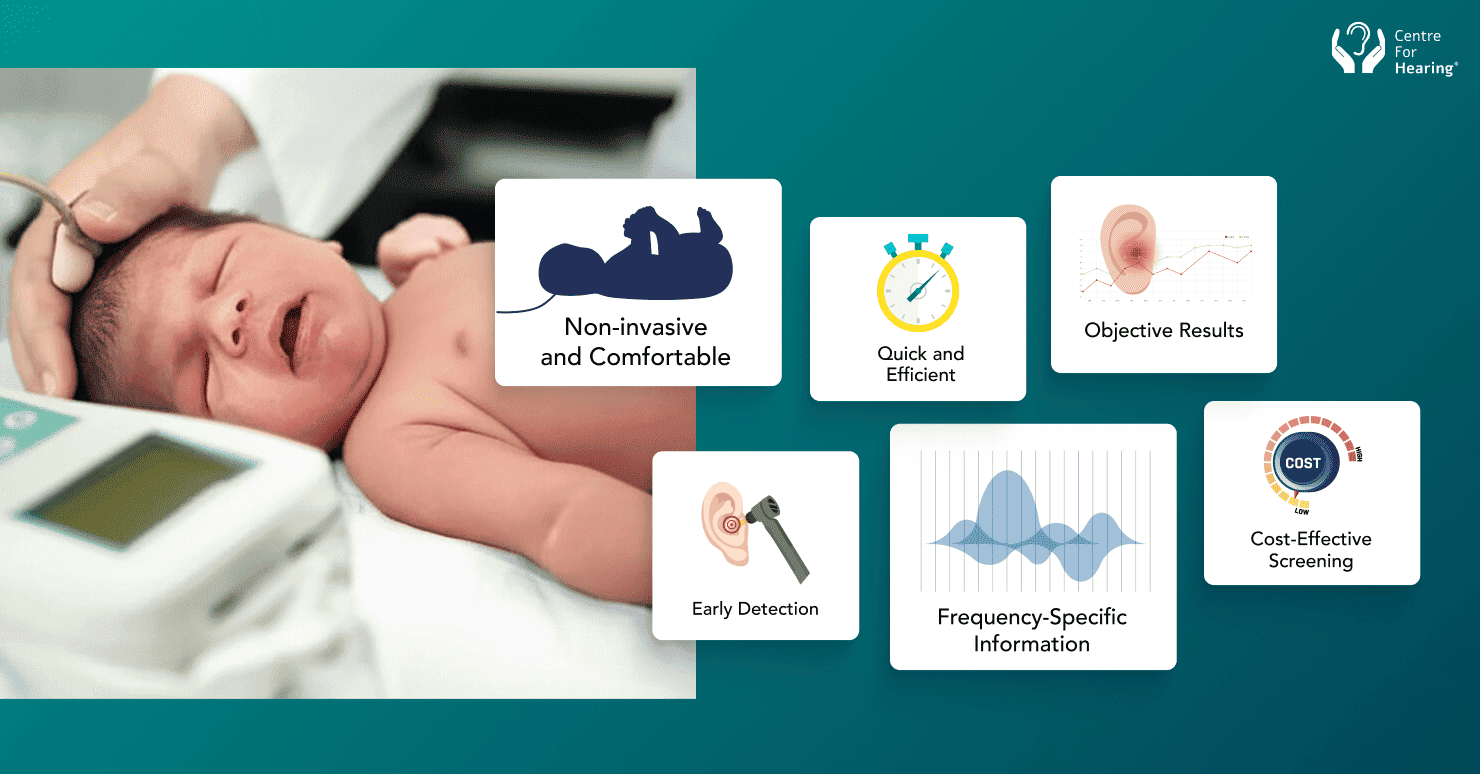
Here are some major benefits of OAE hearing test:
- Non-invasive and Comfortable: The test causes no discomfort and can be performed while the baby sleeps or feeds. There are no needles, loud sounds, or uncomfortable procedures involved.
- Quick and Efficient: Each test takes only a few minutes, making it practical for busy clinical settings and reducing stress for both parents and children.
- Objective Results: The test doesn’t rely on subjective responses, providing reliable results regardless of the patient’s cooperation level or developmental stage.
- Early Detection: OAE testing can identify hearing difficulties in the first few days or weeks of life, enabling early intervention that can significantly improve outcomes.
- Frequency-Specific Information: The test can provide information about hearing function at different frequencies, helping audiologists understand the nature and extent of any hearing loss.
- Cost-Effective Screening: OAE testing offers an economical way to screen large populations for hearing difficulties.
Beyond Newborns: OAE Hearing Test for All Ages
While OAE testing is perhaps most well-known for its role in hearing screening for babies, its applications extend throughout life. Children who pass their newborn hearing screening may still develop hearing loss later due to factors such as ear infections, noise exposure, certain medications, or genetic conditions that manifest over time.
For older children and adults, OAE testing can help differentiate between different types of hearing loss. When combined with other hearing tests, it provides valuable information about whether hearing difficulties originate in the outer hair cells of the cochlea or elsewhere in the auditory system.
The test is particularly useful for monitoring hearing in individuals who are at risk for hearing loss due to noise exposure, certain medications, or medical conditions that can affect hearing function.
When Should You Consider OAE Testing?

While hearing screening for babies is often mandatory in many hospitals, there are several other situations where OAE testing might be recommended:
- Routine screening for all newborns: If a baby doesn’t pass the initial hearing screening for babies, OAE testing may be part of the follow-up assessment.
- Suspected hearing loss in infants or young children: When parents or caregivers notice signs that a child may not be hearing properly, OAE testing can provide objective information about inner ear function.
- Monitoring high-risk individuals: People exposed to loud noises, taking medications that can affect hearing, or with medical conditions that increase the risk of hearing loss may benefit from regular OAE testing.
- Pre-employment or occupational health screenings: Some workplaces use OAE testing as part of hearing conservation programmes.
Centre for Hearing®: Your Partner in Comprehensive Hearing Care
At Centre for Hearing®, we understand the critical importance of early and accurate hearing assessment. As India’s trusted hearing care provider since 1973, we have helped over 300,000 satisfied customers across our network of clinics in Delhi, Gurgaon, Chandigarh, and Punjab.
Our state-of-the-art facilities feature the latest European manufacturer diagnostic equipment, including advanced OAE testing systems our team routinely calibrates for accurate reporting.
Also, our RCI-registered, qualified audiologists bring years of experience in hearing diagnostics, ensuring that you receive the most reliable results and expert interpretation.
We offer comprehensive hearing evaluations that include OAE testing as part of our complete range of hearing care services. Whether you’re concerned about your newborn’s hearing, monitoring hearing health in your family, or seeking answers about hearing difficulties at any age, our expert team is here to help.
Book Your Free Consultation Today
Don’t wait when it comes to hearing health. Early detection and intervention can make a profound difference in outcomes, especially for young children.
Contact Centre for Hearing® today at 📞 +91 9811 227 269 to schedule your comprehensive hearing evaluation, including OAE testing.
To find the nearest centre to your location, click here.
Our home visit facility is also available, making it convenient for families with newborns or elderly family members who may find it challenging to visit our clinics.
To learn more, contact us.
